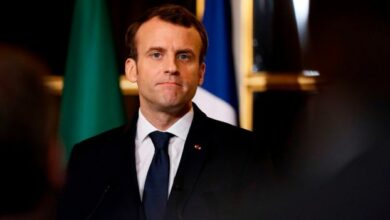
Friedrich Merz, the likely next chancellor of Germany, has asserted unequivocally that he is in favor of making European unity and security stronger, and demanding actual independence from the United States. Amidst the threats posed by the new Trump administration and Russia’s ongoing war against Ukraine, Merz’s statement resonates with the heightened unease in the transatlantic alliance, particularly following President Trump’s re-election.
During an interview with German public broadcaster ARD last week, Merz described concerns of America’s apparent lack of consideration for Europe’s future. He questioned whether the future of the NATO alliance would be in its “current shape,” emphasizing that Europe had to develop an independent defense capability in a hurry. “I never thought I’d ever have to say this on TV, but it is apparent that this government doesn’t give much heed to Europe’s prosperity,” he told ARD.
Merz stressed that his top priority would be to rapidly make Europe stronger so that the continent could become more and more independent of US influence gradually. His words signify a drastic shift in tone from a conventionally close US ally, particularly from a pro-Atlantic leader.
The effects of Trump’s “America First” policy and the demand for a re-examination of security guarantees given after 1945 have caused tremors in Europe. Prior to the June NATO summit, Merz was interested in whether or not NATO would remain relevant or if Europe would need to expedite the development of its own defense system.
Merz equated the US and Russia, the latter being widely regarded as a threat to European security. He stated, “We are under huge pressure from both sides, and the unification of Europe has to be my highest priority.”
Since his party took the previous national election, Merz’s conservatives are in delicate coalition talks, fighting against opposition from far-right and far-left parties that have become powerful in parliament. The pressure is building on Germany, the economic powerhouse of Europe, as businesses request assistance to remain competitive abroad amidst public fractures over migration and rising tensions with the Trump administration, which has threatened tariffs.
Merz has objections over potential Russia-Trump negotiations regarding Ukraine that he cannot accept on both Europe’s and Ukraine’s part. According to him, “It would be disturbing if the ‘America First’ policy were to degenerate into ‘America Alone.'”
Germany has been one of the key suppliers of military aid to Ukraine, following the US. While Merz favors ongoing support, he has been cautious about deploying German soldiers to Ukraine to help facilitate a potential ceasefire.
Concerns now surround the 35,000 US troops in Germany, which are deemed by many as a vital security assurance. But with Trump’s bluffing to withdraw the long-standing security assurances, the exposedness of Germany is left to chance, particularly as it is nuclear-capable-less and undermanned in conventional force. With increasing tensions, the possibility of being an easy target for Russia becomes increasingly real, and there are panic talks about the future defense of Europe.



